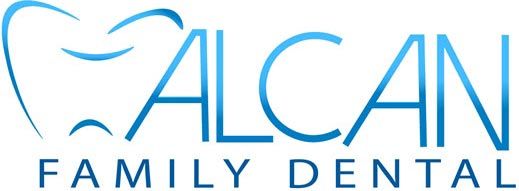Dental Bridges in Anchorage, Alaska
It takes all of your teeth for proper speaking, chewing, and keeping proper alignment of all other teeth. Tooth loss does not have to happen as you age, but if you do suffer the loss of a tooth or multiple teeth, the loss must be replaced to maintain the proper overall function of your mouth. Today, there are amazing options for correcting tooth loss.
Dental Bridge Options
A bridge — a dental bridge device is used to replace missing teeth by attaching artificial teeth to adjacent natural teeth (called abutment teeth). Bridges are permanently attached when applied, just like a crown.
A fixed bridge is applied by either placing crowns on the abutment teeth or by bonding the new artificial teeth directly to the surface of the abutment teeth.
If you are currently missing one or more teeth, you are already aware of the importance they have to your appearance and overall oral health. All of your teeth work together for a multitude of daily functions, from eating to speaking. With any teeth missing, it becomes much more difficult to do these things. Any missing teeth can and certainly should be replaced as quickly as possible. Fixed bridges are a great way to restore your dental health and restore confidence in your appearance.
What Is a Dental Bridge?
A dental bridge (sometimes referred to as a fixed partial denture) is a precision-crafted oral device that fills the gap where teeth are absent. Fixed bridges are secured into place by being bonded to other teeth and can only be applied or removed by a dental professional.
Why Do I Need a Dental Bridge?
Both your oral functionality and appearance are very important reasons for deciding to get a bridge. A dental bridge helps support your other teeth, oral health, lips, and cheeks. Even the loss of a tooth in the back of your mouth may cause your mouth to sink and possibly cause your face to look older.
Dental health is the most important reason for a bridge. Teeth were designed to complement each other. Unusual stresses are placed on the gums and other oral tissues when teeth are missing, causing a number of potentially harmful disorders. Increased risk of gum disease has proven to be one of the worst side effects of missing teeth and can be minimized with a bridge. Missing teeth can cause speech disorders as they are used to make many of the sounds we use to speak clearly.
How is a Dental Bridge Attached?
The attachment procedure usually takes two or three appointments to complete. At the first appointment, Our doctors will prepare the teeth on either side of the gap by removing a portion of the enamel and dentin.
Since the bridge must be fabricated very precisely to ensure the correct bite and to match the opposing tooth, digital and traditional impressions of the teeth are taken and sent to a lab where the bridge will be constructed.
Fixed bridges are typically cemented to the natural teeth next to the space left by the missing tooth. A pontic (false tooth) replaces the lost tooth. Crowns, which are cemented onto the natural teeth, provide support for the bridge.
What Materials Are Used?
Dental bridges can be constructed from multiple materials, including gold alloys, non-precious alloys, porcelain, or a combination of these. If porcelain is used, it is often bonded to precious or non-precious metal. For most dental bridges, we often use a special form of porcelain called zirconia. We choose zirconia because it provides the strength of precious metals but is more easily colored to match your teeth and is much more cost-effective.
How Do I Take Care of My Dental Bridge?
Your dental bridge is carefully designed and built with hygiene and care in mind. However, even with the care taken in the design, a strict care regimen of brushing and flossing will keep the dental bridge and your surrounding teeth clean. Proper care is critical as your dental bridge relies on the health of the surrounding teeth and gums for support. An unclean bridge can significantly damage the health of your other teeth, causing them to become weak and fall out.
Call us Now if You’re Experiencing Pain.
We can take walk-ins and emergency dental calls during normal business hours.
Browse Our Website
Contact Information
Phone: (907) 562-4774
Email: info@alcanfamilydental.com
Address: 2819 Dawson Street Anchorage, AK 99503
Business Hours:
- Mon - Fri
- -
- Sat - Sun
- Closed
Emergency & Walk-Ins Available






